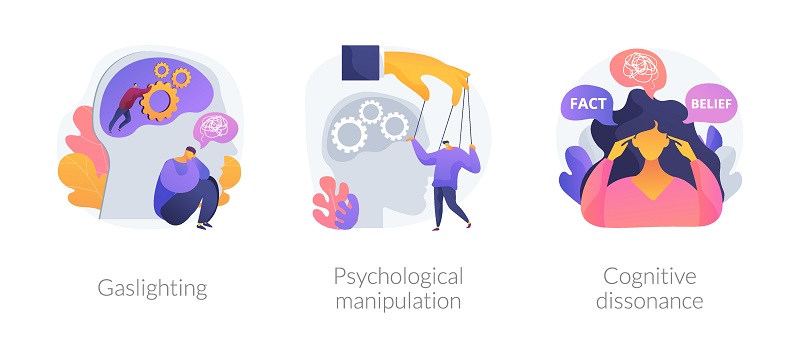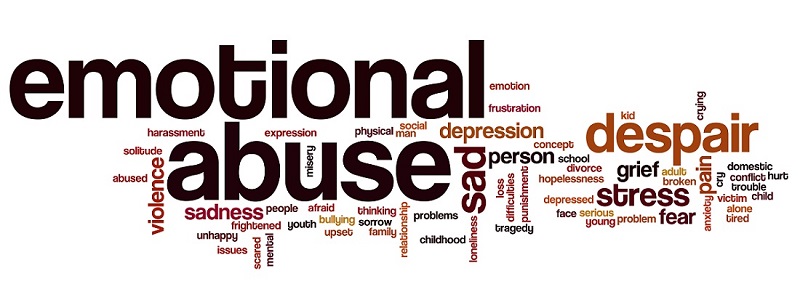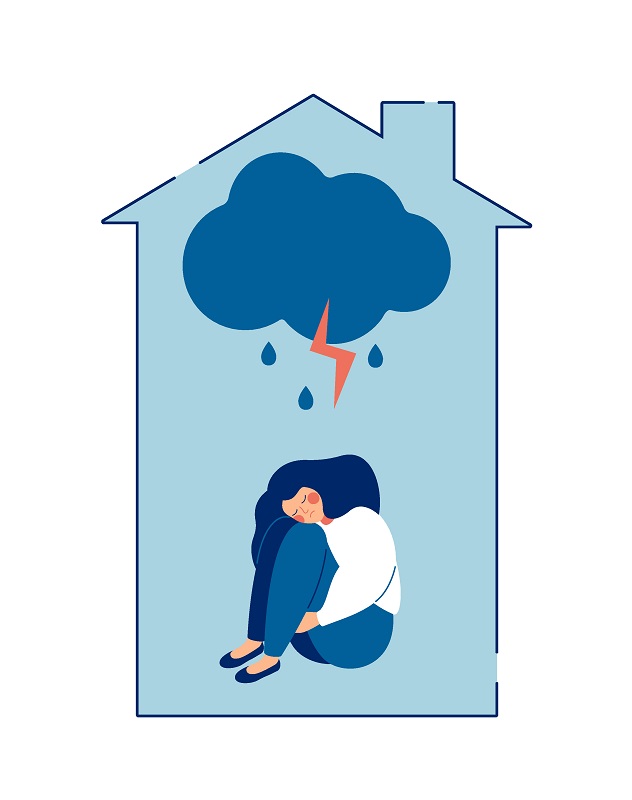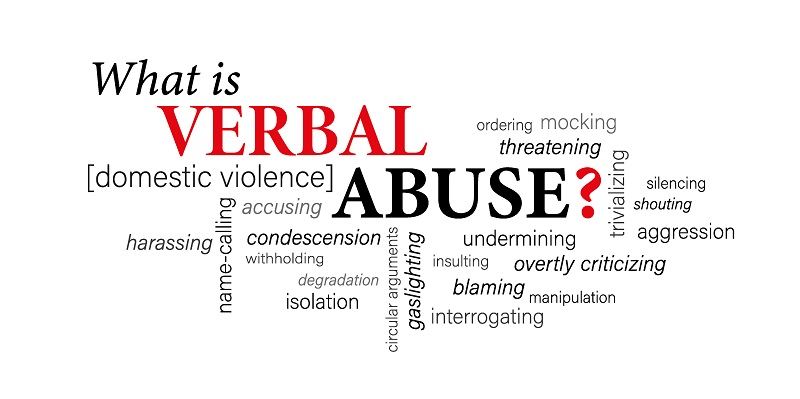Dangerous dating trends pose a risk to a person’s physical and mental well-being. For anyone who is looking for a serious healthy relationship or is questioning how their current partner treats them, it’s important to be aware of what these trends are.
If you are older or aren’t familiar with dating slang, these trends involve abusive tendencies from one partner to another. Relationship experts believe that acts like “love bombing” or “Catfishing” come from narcissists abusing their partners in some way or another.
Read on to learn more about the most common forms of abuse and dangerous trends in relationships, online or otherwise.
Love Bombing
It may be nice, even romantic, to be given flowers or even a gift in public from a would-be suitor. However, love bombing takes the idea of nice displays of affection and amplifies it to an overwhelming, creepy level both on social media and in real life to potentially dangerous ends.

Recognizing love bombing
A love bomb is a bombardment of romantic gestures on a frequent basis across multiple online platforms and real life messages. Love bombing can reach a point that the recipient may feel uncomfortable or even threatened by the love bomber in question.
Sometimes people respond positively to love bombing, and that’s all well and good. However, negative reactions range from embarrassment in public or in front of family members, to feeling threatened by an overwhelming pressure to reciprocate.

If you start to notice a persistent, frequent effort from a new prospective partner to get your attention or even to capitalize all of your focus, be wary. Especially if this bleeds over from dating sites to social media.
Whether intentionally or not, this person may flood your online persona with unwanted, embarrassing messages, pictures, and more. It can be even scarier if they have your address and send you things, or worse, come to say hello.
Why is love bombing so dangerous?
Taken to extremes, love bombing can wreak serious emotional turmoil on the person’s victim. You must remember that it is a form of psychological and emotional manipulation. The love bomber will attempt to monopolize your time and energy to establish a toxic relationship.
Love bombing is done strictly to distract the victim from their character flaws, creating toxicity in the relationship, and ultimately aiming to take control over the victim’s life. If it helps, think of this as a form of grooming where the love bomber will expect certain things in return over time.
These people tend to exhibit narcissistic tendencies while struggling with their own feelings of inadequacy. They may not feel as if they live up to being their target’s romantic partner, and are thus prone to abandon their victim after establishing a codependency.

People who love bomb have been recognized as cheating on their partners as well, and can sometimes be erratic or eccentric. If they do vanish, they may alienate their victim to the point where they question their own actions and decision-making.
Offenders tend to engage in duplicitous actions following extreme gestures of affection. This includes ghosting, benching, and other types of dangerous, abusive behavior after bouts of overwhelming affection.
Think of it as a switch between hot and cold, where the victim is left feeling either extreme. It is a twisted attempt to maintain control over a person. Here are some warning signs of a love bombing:
- Unhealthy dependency
- Excessive flattery
- Mistreatment of people besides yourself
As these are people who are battling with low self-esteem and may be attempting to over-compensate in toxic ways, you should remember that you are not at fault. The victim is never to blame for the love bomber’s actions.
How to keep yourself safe from a love bomber
It is common enough to get a lot of messages from a new date when you start looking on dating apps for a relationship. These can even be nice. But when the showering gets to be too much, you need to stop being subtle.

Be upfront and make it clear that this person needs to either back off a little bit or entirely. Tell them that if they don’t then you will take measures to block the person from contacting you. In extreme cases, you can and should involve the authorities.
The clearer you are with what is and isn’t okay and the sooner you act, the less likely you are to fall victim to a love bomber. If you or someone you love winds up in a relationship with a love bomber, the best course of action is to end the relationship as gracefully as possible.
In the beginning, this may be challenging, but ultimately, this will prove to be beneficial in the long run.
Catfishing
Have you ever met a new partner on a dating site that seemed too good to be true? Maybe their pictures seemed like a one in a million bomb-shell, so how could you not respond? And, of course, if someone so amazing needs a little cash to help them see you, why not help out?

What is catfishing?
It’s one of the oldest romance scams around, and has been a consistent problem for many services that connect people online. “Catfishing” is when someone pretends to be somebody else online in order to deceive other users with the intent of stealing their identity or money.
To this day it remains a thorn in the side of some of the largest and most popular websites and apps. Clever scam artists can utilize visual and audio technology to further their fake persona, going well beyond attractive pictures and catchy profiles.

People who are looking for new relationships are particularly vulnerable to these kinds of scams. They tend to be eager to match with someone attractive and help them out with some hope that it leads to a romantic meetup. This is especially true with older daters.
How to recognize and avoid catfishers
As we mentioned, some of the more noticeable red flags are pictures that seem too good to be true, as if the person were a supermodel. It can happen that this person is real, but maybe pull back your expectations for a moment until you are sure.
Additionally, big warning signs include any time that your would-be date asks for money or some kind of assistance to facilitate meeting. This can be either money being sent directly, or if they ask for any sort of information about your credit cards, banking, or identity.
Over-the-top enthusiasm can be a sign as well, especially when it circles back to getting something out of you before a first date. If you do a video call, ask them to do a random act that they won’t anticipate to verify they are real. If it’s a phone call, listen for any sort of distortion.

Always ask for more information from the person you are chatting with if you suspect they are catfishing you. Never give personal information or money online, ever. If you do think this person is catfishing you, back out of the conversation entirely and notify the site’s security.
Gaslighting
When it comes to abusive relationships and acts that serve as a catalyst for self-harm and trauma, “gaslighting” is one of the more insidious dangerous trends. It is not a new trend, although identifying and recognizing its use and impact has grown in recent decades.
If you feel as if you are constantly experiencing low self-esteem as a result of an unhealthy relationship, you may be a victim to this kind of abuse.
What is it?
Gaslighting is when abusers persistently lie to, insult, and even abuse their partner to encourage a feeling of insecurity, reliance on the perpetrator, and a loss of self-worth. Victims are pushed to doubt themselves and feel inadequate.
The term is taken from the 1930’s stage play “Gaslight” (“Angel Street” in the U.S.) The play portrays a husband trying to convince his wife and other people that she’s crazy.

He manipulates her environment in subtle ways to do this, even lying to her about obvious observable occurrences, like the gaslight dimming. The husband convinces her this isn’t happening and continues to abuse her psychologically.
In reality, as in the play, it is a form of brainwashing that is done over a long period of time, encouraging a devaluation of a person’s humanity. It is one of the most common situations people in a toxic relationship find themselves in, and red flags come in a variety of signals:
- Lies and exaggeration – someone who is a gaslighter will lie about little and big things to you, including very real things as a way to convince you of your delusion. They will also exaggerate mistakes you make and quirks you have as if they were the worst thing to exist.
- Psychological manipulation – they will push to create cognitive dissonance where you question fact and your own belief to the point where reality feels unreliable.
- Repetitive behavior – as a long-term manipulation and form of abuse, a gaslighter will be persistent in their belittling. The effectiveness of a constant stream of abuse, small or large, is devastating. The goal is to wear you down until you break.

- Challenging disputes leads to escalation – any sort of confrontation will lead to the gaslighter becoming more upset, overly-critical, and abusive.
- Codependency – the gaslighter is pushing you to believe that they are absolute in their ability, thinking, and judgment, and that you cannot survive without their benediction. Questioning yourself at every turn is a tactic designed to force you to turn to your abuser.
- False hope – giving you kernels of hope and praise for small things is a tactic designed to give you false hope that their behavior is improving, and that your situation will too. It is meant to build you up so that you can be torn down again.
- Dominion and control – the ultimate goal of a gaslighter is to dominate you, your life, and to be the leading controller in all facets of decision-making for you.

Experts associate a Narcissistic Personality Disorder (NPD) with gaslight offenders. This means that these people display symptoms of grandiosity, no empathy for others, and an obsessive need for admiration. Their behaviors are manipulative, self-centered, arrogant and demanding.
These kinds of people exist not only in toxic relationships between partners, but also in families, at the workplace, and potentially in any social circle. Narcissism is a dangerous thing in a person and can lead to harmful outcomes when consistently thrust upon someone.
How to deal with gaslighters
The manipulation tactics gaslighters employ are subtle but consistent, designed to whittle you away into a shell of who you really are. If you can remove yourself from the relationship, do so immediately and make this separation a priority. Take note of all cases of emotional abuse, as well.

If for whatever reason you are unable to divorce yourself from this person, perhaps because of children or something else, then keep the following in mind:
- Be very aware of what this person is saying and doing around you. Little details can be turned against you if you aren’t careful.
- The gaslighter is someone who is sick and needs to take it out on others. Don’t allow them to ever make you think you are the one in the wrong.
- Never waver in your belief about yourself and what you know is true. Make your intuition a fortress within your psyche that cannot be marred by nitpicking and criticism.
- Never give them the idea that you believe what they are saying. This will encourage further abuse and give them validation that their tactics are working.
- It is rare that you will convince this person of anything. Anticipate that they will win some and move on.
- Be direct and simple with the gaslighter and never forget that their true motive is to make you believe what they want you to as a way to manipulate you.
This is a very serious form of abuse, and if you are experiencing it or feel as if a friend is victim to it, reach out to as wide a circle of family and friends as you can to let them know. Don’t be silent about abuse, lest you give it opportunity to fester into something worse or dangerous.
Benching or bench dating
An idealization of a relationship may be that you and your partner are meant for each other, and that no one else would be as good of a fit. All well and good if you think that is the case with your new date, but do they think the same way?

What is benching dating?
Bench dating, or benching, is when one partner places the other in a roster of potential matches to have a relationship with. Your honeymoon phase in your new relationship may only be one-sided as your partner weighs their options amongst several partners.
Relative to the other trends listed here, it isn’t nearly as dangerous. However, it can have a significant impact on someone who has already committed to a person. The discovery that your soulmate was really just shopping around to find the best fit can be a painful experience.
How to recognize you’ve been benched
If you pledged your undying love to a potential life-long partner and received a tepid response, it may be a not-so subtle hint that they haven’t decided yet. Contact may also cut out at some point as your love considers who to date.

Additionally, if you have the impression that they are working you into a strict routine for meeting up, they may have a fixed routine for which dates meet when and where.
We feel it is important to be direct here and ask. If you can’t get a straight answer, or you feel as if you’re being neglected, make it clear that you aren’t happy. If they continue to hold you off or you feel as if they are still seeing other people, consider cutting your losses and moving on.
How to recognize abusers
Abusive relationships come in all varieties, ranging from physical violence to verbal and emotional abuse. From the first time to the most recent, incidents can leave deep, lasting psychological trauma. This is especially true in relationships where constant contact is maintained.

The sad truth is that you may not always be able to spot someone who abuses a partner when you look on a hookup or romance website. However, if it seems that they have been in a series of relationships that may be a sign that something isn’t as it seems.
More signs can crop up as you start to date the person in question. If they are:
- Quick to anger
- Strict with their rules
- Physically violent with you or others
- Cutting you off from friends and family
- Verbally abusive, insulting, argumentative

These are just some examples, but if you ever feel uncomfortable or pressured by your relationship, consider the possibility that your partner is abusive.
How dating apps have changed relationships
Dating apps have unquestionably changed the way that people approached relationships. On top of making it easier to find a partner, they have also given more people access to platforms for meeting others.
Unfortunately for you, apps have given scammers a fortuitous means by which to take advantage of unaware singles. People aren’t always on their guard when they use a service to find love either, and if they are older they may be less aware of tactics used against them.
Fortunately for you, the same apps have constantly been advancing against strategies employed by scammers. Their services have evolved to more keenly recognize fake accounts, respond to abusive users, and protect legitimate users online.
How to avoid being scammed on hookup sites
You may be wondering how you can avoid being scammed online as you use a service to meet other singles. It isn’t always possible to avoid a scammer, especially if they are doing it professionally, but there are some tricks you can keep in mind:
- Start by using a legitimate dating service that is reputable
- Look for users that are verified as legitimate people on the website or app
- When you meet someone, ask for information that may seem random along with normal questions
- Judge whether their pictures and profile seem real
- Never send money, personal information, or data of any kind
You won’t ever have a fool-proof approach to finding romance online, but with a little precaution and common sense you can give yourself the best odds of being safe online.
Finding the right relationship
Finding true love is tricky, more so when you are looking for a soulmate. Websites like Match.com, Elite Singles, or even Zoosk are excellent options for finding a serious relationship. They offer your best opportunity at a safe dating experience with stable singles.